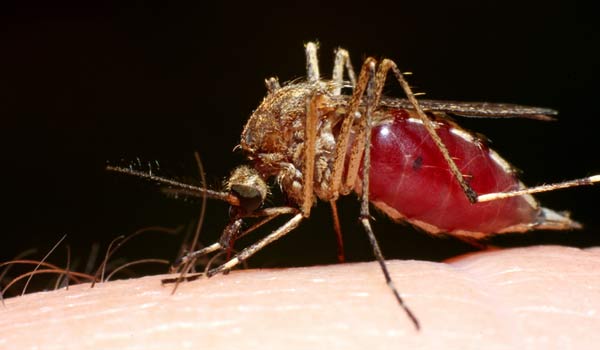CDC Reports Jump in West Nile Cases and Deaths

Get the world’s most fascinating discoveries delivered straight to your inbox.
You are now subscribed
Your newsletter sign-up was successful
Want to add more newsletters?

Delivered Daily
Daily Newsletter
Sign up for the latest discoveries, groundbreaking research and fascinating breakthroughs that impact you and the wider world direct to your inbox.

Once a week
Life's Little Mysteries
Feed your curiosity with an exclusive mystery every week, solved with science and delivered direct to your inbox before it's seen anywhere else.

Once a week
How It Works
Sign up to our free science & technology newsletter for your weekly fix of fascinating articles, quick quizzes, amazing images, and more

Delivered daily
Space.com Newsletter
Breaking space news, the latest updates on rocket launches, skywatching events and more!

Once a month
Watch This Space
Sign up to our monthly entertainment newsletter to keep up with all our coverage of the latest sci-fi and space movies, tv shows, games and books.

Once a week
Night Sky This Week
Discover this week's must-see night sky events, moon phases, and stunning astrophotos. Sign up for our skywatching newsletter and explore the universe with us!
Join the club
Get full access to premium articles, exclusive features and a growing list of member rewards.
The number of reported cases of West Nile virus infection in the United States has reached nearly 1,600, including 66 deaths, according to an announcement today (Aug. 29) by the Centers for Disease Control and Prevention.
That's a 40 percent increase in cases over the total from only last week, and health officials expect the increase to continue through late October, based on previous outbreaks of West Nile, said Dr. Lyle Petersen, director of the CDC's Division of Vector-Borne Infectious Diseases. As of last week, 41 deaths had been reported.
Texas is the state that has been hit hardest by the outbreak, with 733 reported West Nile cases.
Of the 1,600 reported cases nationwide, close to 900 are people who developed the rare, neuroinvasive form of the mosquito-borne disease, which affects the nervous system. The other reported cases involve what doctors call West Nile fever, a condition that can cause fever, headache, body aches, nausea, vomiting.
Most instances of West Nile infection go unreported; in about 80 percent of those infections, people experience no symptoms.
While officials aren't predicting yet how big this year's outbreak will get, they think the number of cases will approach or exceed the numbers from 2002 and 2003, Petersen said. About 3,000 cases of neuroinvasive disease, including 260 deaths, were recorded each year.
In 2002, the total number of West Nile cases reported was 4,156, and in 2003, it was 9,862, according to the CDC.
Get the world’s most fascinating discoveries delivered straight to your inbox.
Hurricane Isaac is not expected to have an effect on the outbreak. While hurricanes can bring an increase in sources of standing water — where mosquitos breed — they also tend to disrupt the entire ecology of an area and interrupt natural disease transmissionbetween birds and mosquitos, Petersen said. So the net effect of a hurricane has little impact on cases.
Pass it on: Cases of West Nile virus in the United States are expected to increase until late October.
This story was provided by MyHealthNewsDaily, a sister site to LiveScience. Follow Rachael Rettner on Twitter @RachaelRettner, orMyHealthNewsDaily @MyHealth_MHND. We're also on Facebook & Google+.

Rachael is a Live Science contributor, and was a former channel editor and senior writer for Live Science between 2010 and 2022. She has a master's degree in journalism from New York University's Science, Health and Environmental Reporting Program. She also holds a B.S. in molecular biology and an M.S. in biology from the University of California, San Diego. Her work has appeared in Scienceline, The Washington Post and Scientific American.
 Live Science Plus
Live Science Plus










